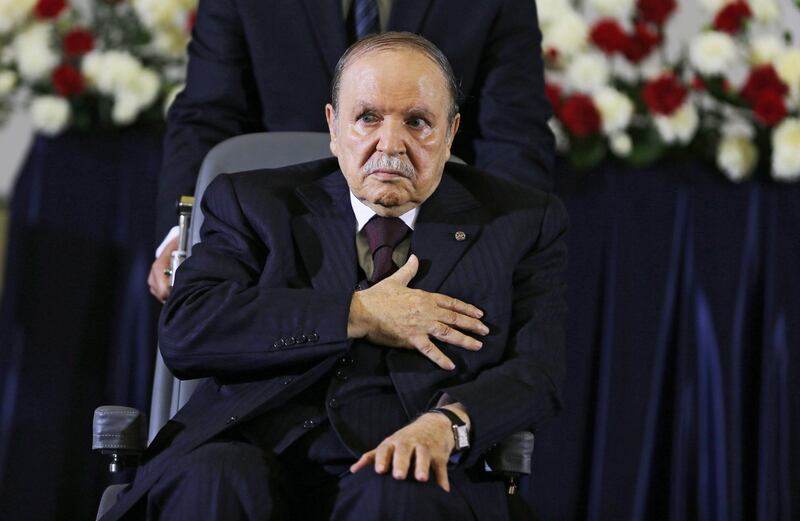Algerian President Abdelaziz Bouteflika issued a decree on Friday calling a much anticipated presidential election for April 18 but without saying whether he will seek a new term.
The ailing 81-year-old, who uses a wheelchair and has rarely been seen in public since a stroke in 2013, is due to complete a fourth term in office on April 28.
Despite his advanced age and poor health, there have been calls from his supporters for him to stand for a fifth term.
But the president himself is yet to make his intentions clear.
By law, would-be candidates now have until March 4 to register with the constitutional court.
Uncertainty over whether Mr Bouteflika will stand for re-election has frozen Algerian politics for months.
No candidate of note has thrown their hat into the ring while the president's intentions remain in doubt.
For the last presidential election in 2014, Mr Bouteflika left it until just days before the deadline to register.
Algerian politics is notoriously opaque with the winner of every multiparty presidential election pre-selected by a shadowy elite, beginning in 1995 with victory by retired General Liamine Zeroual.
_____________
Read more:
[ UK minister heads home over migrant boat issue ]
[ Arab migrants 'missing' after seeking shelter in Algeria: UN ]
[ Migrants become Greek citizens after rescuing others from wildfires ]
_____________
For this year's election, the membership of the kingmaking elite has changed.
During his fourth term, Mr Bouteflika finally made good on a longstanding pledge to reduce the power of the traditional powerbrokers by disbanding the DRS intelligence agency in 2016.
But under his watch, business networks have become increasingly entwined with the political structure, leaving it difficult to judge with confidence who would be put to voters as the regime's anointed candidate in the event that Mr Bouteflika does not run.
The president's brother and special adviser Said has been widely seen as Algeria's de facto ruler since Mr Bouteflika's stroke, which severely impaired the president's speech.
But many believe Said will wish to remain in the shadows behind the throne, rather than be the public candidate, should the incumbent throw in the towel.





